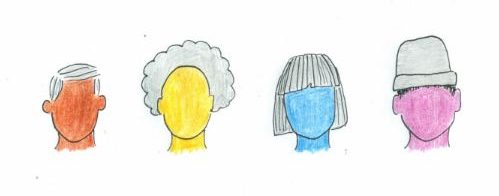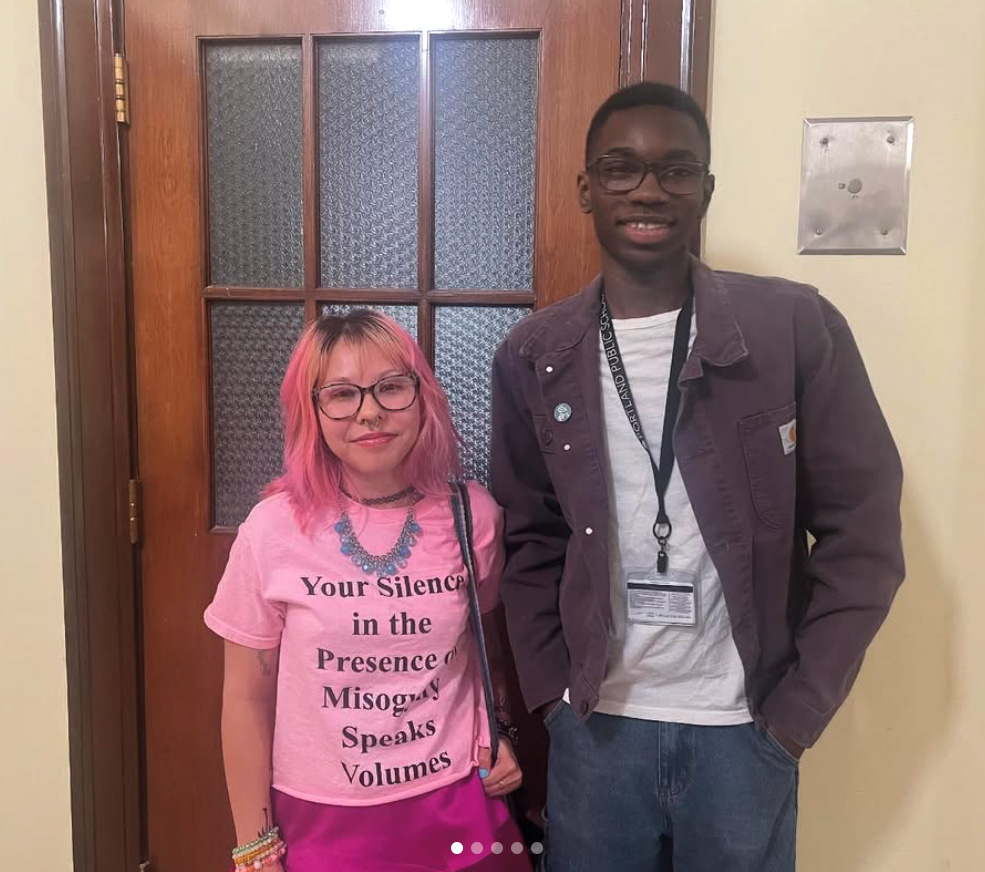Is Social Media Stealing Our Self Identity?

Clarion photo Hannah Madans
November 18, 2016
As a living, breathing teenager, I can confidently state that we live in a world where most people are constantly bombarded by status updates, Snapchats, text messages, and Instagram posts from virtually anyone we feel like hearing or knowing about. As incredible as this reality is, it’s hard to ignore the fact that we as humans now have the ability to portray ourselves in whatever way we choose, whether or not that portrayal is accurate.
This representation of identity, whether it’s accurate or false, is something that as humans we are constantly noticing. “Texting and emailing and posting let us present the self we want to be,” wrote Sherry Turkle, a science and technology professor at Massachusetts Institute of Technology. This seems to resonate to most people, especially due to the fact that most of our readers are teenagers attending a semi-large public high school.
In school, we are surrounded daily by hundreds of peers who — almost guaranteed — all have one thing in common: an image that must be kept up. Our technological devices and the apps downloaded onto them are pieces of us that we have absolute and complete control over. As we are able to post, text, update, and tweet whatever we feel like, our devices allow us to present ourselves to the real world however we’d like to be seen.
Walking down the halls of Cleveland, we see the same familiar faces every day. The same waves, the same shy smiles, the same awkward small talk on the way to the next class. But outside of school walls, through Instagram posts, Snapchat filters, and status updates, our peers come across as completely different people. Social media’s disconnect from reality enables its users to post, do, or say whatever they want to, without thinking twice.
This difference in identities at school versus on social media seems most likely due to the fact that social media creates a sense of detachment between the poster and the viewer. On social media, you have the ability to edit every selfie so it’s just right, fine tune every caption so it reads exactly how you want to be heard, and upload images that fit perfectly with your grid, your aesthetic. This in effect isolates you from real life social interaction, feedback, and self perception. It’s due to this that it becomes easy to begin placing more value on your online identity than who you are at your core. Author Christine Erickson wrote, “Self-image is important, and not always in a narcissistic way. It’s how we define ourselves, and present for others to see. We rely on others’ perceptions, judgments and appraisals to develop our social self.” I can vouch to that fact. Behind a screen, it’s easy to portray yourself exactly the way you want, in whatever light you want to be seen. In real life, especially in the halls of high school, this isn’t always the case.
This idea of false identity is also quite apparent on a larger scale. Take the celebrities we see plastered across billboards, or lining the covers of magazines for example. Kim Kardashian, Heidi Klum, and Angelina Jolie are regarded as some of the most beautiful women in our world today, but how often do you think these celebrities actually post photos of themselves with no makeup, no edits, and no worries about how the public might react? The tools that exist today for simply editing photos are endless. There are apps that accentuate your features, apps that cover blemishes, apps give you a full face of makeup, and so much more.
In fact, this has become such an epidemic that singer and songwriter Alicia Keys has started a “no makeup movement” among celebrities. After coming out with a powerful essay on the online magazine, “Lenny,” which spoke to the struggles and pressures of being a woman in today’s society, the celeb pledged to stop covering up completely. “Not my face, not my mind, not my soul, not my thoughts, not my dreams, not my struggles, not my emotional growth. Nothing,” she said. And already, in the weeks since then, Keys has made good on her promise. For example, take this newly released cover page from Fault Magazine, where Keys is glowing, even with a bare face:
Keys has continued to live life by her new pledge, and the public has witnessed her transition to fresh faced selfies on Instagram and empowering tweets. Not only is Alicia Keys beautiful without makeup or editing software, she is real.
Whether we’re talking about the celebrities who pop up in our Instagram feeds, or the classmates who we pass by in the hallway each day, social media has completely affected our perception of other humans. The technology and applications that we use on a daily basis have given us the ability to completely rewrite our identities. Although I concede that there are positive factors to this reality, the idea that every post, every Snapchat, every status update we scroll past has the possibility of being untrue? It’s a fact that we as humans should be aware of. When talking about this reality, commentary writer Jim Taylor put it best:
“Social influences, accelerated by the recent explosion of technology, may be shaping our self-identities in ways in which most of us aren’t the least bit aware.”










